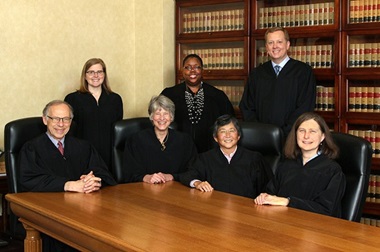A case for a special session
In the wake of Representative Reschke (R-Crater Lake) urging Oregon Governor Kotek to call a special session to address fentanyl deaths and overdose events brought on my Measure 110, the Oregon Supreme Court intensifies the need.
In the criminal case of
Oregon v. Hubbell, a trial court convicted defendant Brian Hubbell of delivery under a prohibited act in ORS 475.752 based on evidence that defendant’s extended-stay hotel room contained a large quantity of fentanyl, a portion of which was packaged in a manner consistent with an intent to sell it to individual users or dealers.
Hubbell was arrested after three people overdosed from the fentanyl found in his hotel room. Hubbell was in police custody at the time and told detectives that he obtained the tub of fentanyl from an ex-girlfriend whose associate in the military had obtained it “through the dark web from China.” He had not distributed any as he knew the dangers and it had been in the tub since he obtained it.
The arguments in the case were around the exception under ORS 475.005(8), “Deliver” or “delivery” means the actual, constructive or attempted transfer, other than by administering or dispensing, from one person to another of a controlled substance, whether or not there is an agency relationship.
Over defendant’s objection, the trial court ruled that evidence was sufficient to convict him of delivery under
Oregon v. Boyd, 756 P2d 1276 (1988). In
Boyd, the Court of Appeals interpreted the phrase “attempted transfer” in ORS 475.005(8) by applying principles of liability for the undefined crime of attempt.
Boyd used ORS 161.405(1), whereby a person who intentionally takes a “substantial step” toward committing a crime is liable for attempting the crime.
Boyd held that possessing a controlled substance in a quantity too large to be consistent with personal use, combined with evidence of an intent to transfer that substance, constitutes a substantial step toward transferring it and was sufficient to show an “attempted transfer.”
A D V E R T I S E M E N T

A D V E R T I S E M E N T
On appeal in this case, defendant argued that evidence was insufficient to show delivery even under
Boyd. The Court of Appeal, on its own, re-examined
Boyd and overruled it, holding that possession plus an intent to deliver, without more, was insufficient to show an “attempted transfer” for purposes of the completed crime of delivery of controlled substances. It could, however, establish a “substantial step” for purposes of the undefined crime of attempt. They determined that their ruling had been counter to the intent of the legislature in adopting the criminal code and providing for a hierarchy of completed versus attempted crimes.
Since
Boyd has set the standard for other cases, the reversal of the Court of Appeals, and now confirmation by the Oregon Supreme Court, may have consequences for Oregonians who have been charged with and convicted of the completed crime of delivery on the
Boyd theory.
What will that do to an already drug addicted Oregon to have dealers and drug traffickers released who were convicted using
Boyd? Will a special session help to tighten the statutes so enforcement can rid Oregon of deadly drugs?
--Donna Bleiler| Post Date: 2023-10-14 21:53:00 | Last Update: 2023-10-14 23:01:41 |







